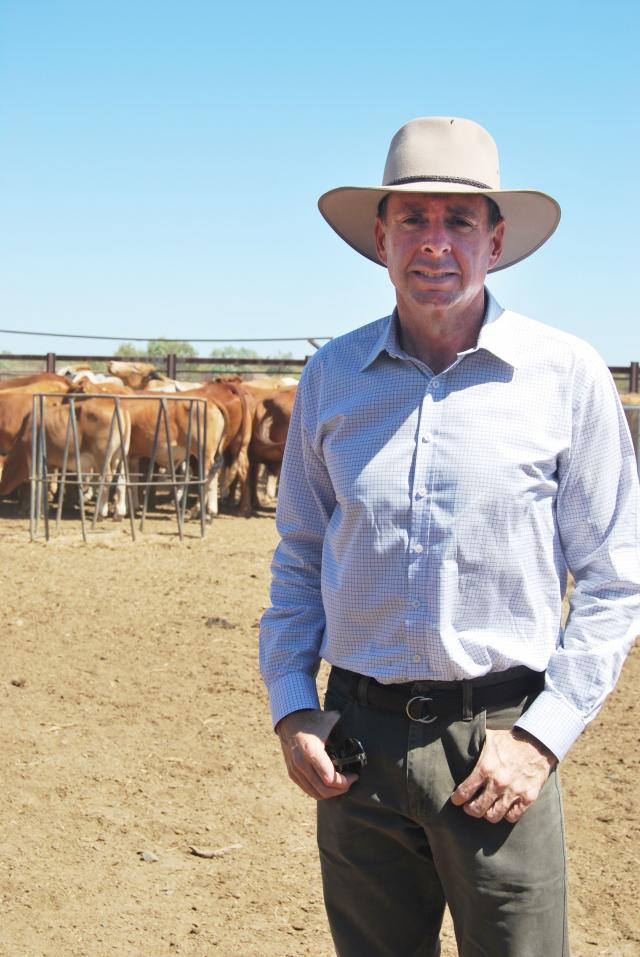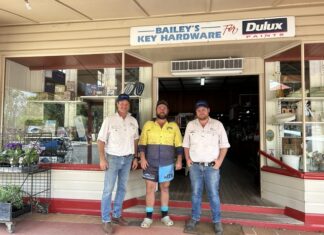Queensland’s agricultural producers have reported strong levels of confidence in the first quarter of 2022, with investment intentions at a record high.
The recent catastrophic flooding in the state’s south east is set to dim the bullish sentiment, however, as farmers in the region count the cost of damage.
The latest Rabobank Rural Confidence survey found Queensland rural confidence had remained at the positive levels recorded at the end of 2021.
Some 90 per cent of the state’s agricultural producers expected agribusiness conditions to either remain stable or improve further in the year ahead.
Along with Tasmania, Queensland had the highest level of farmer confidence in the country.
Investment intentions among Queensland producers were found to be at their highest level in the survey’s 22-year history.
In all, 94 per cent of those surveyed plan to increase or maintain the same level of investment in their business in the coming 12 months.
The survey found strong commodity prices and seasonal conditions were key reasons for optimism within the agricultural sector.
Rabobank regional manager for Northern Queensland and Northern Territory Trent McIndoe said the rain that had fallen in the state’s south east after the survey had significantly impacted some agricultural production in the region.
“The main impacts have been on dairy, horticulture (such as sugar cane and soybeans) and beef operations in the region,” he said.
“With, very sadly, some stock losses and also damage to crops and infrastructure.”
Across the state, the survey found 39pc of farmers had an optimistic outlook on the 12 months ahead, which was unchanged from last quarter.
Just eight per cent expected agribusiness conditions to deteriorate in the year ahead (compared with 10pc previously).
A total of 52pc expected conditions to remain stable.
Commodity prices and seasonal conditions were cited, respectively, by 79pc and 48pc as key reasons for Queensland producers’ optimism.
Mr McIndoe said the combination of strong commodity prices, good seasonal conditions across much of the state and low interest rates have contributed to the positive outlook among many producers.
This was being reflected in a strong appetite for property purchase.
“We have never seen the Queensland agricultural property market so strong,” Mr McIndoe said.
“There are not a lot of properties on the market, but when they are available they are well contested and it is not unusual to see 20 registered bidders at auctions.
“Beef is the commodity that is outperforming everything else at present and we are seeing that reflected in the demand for cattle properties.
“Activity for sugar cane farms is increasing, with some converted to beef production and other commodities.”
As well as buying more land, Queensland producers are now also seeking to spend more in their farm businesses.
Half of those planning to increase investment intend to buy new plant and machinery, with 69pc buying new fences, yards and sheds.
Mr McIndoe said investment intentions would have been higher if producers were able to access product, materials and labour, which supply chain issues prevent.
Mr McIndoe attributed widespread rain across much of Queensland during the summer to the positive outlook among many producers.
“There are still some pockets in western Queensland that have missed the rain and parts of south east Queensland that have now received too much in recent weeks.”.
Across all commodities, beef producers are the state’s most optimistic sector, with 94pc expecting agribusiness conditions to stay steady in the year ahead.
Producers in the state’s beef sector – buoyed by a continuing good season and strong commodity prices – also reported the strongest investment appetite.
Some 40 per cent intend to spend more on their businesses in the next 12 months. Of those, 32pc hope to buy property.
In line with the positive sentiment, almost half of Queensland’s beef producers, at 49 pc, expect their gross farm income to increase this year.
As for the grain sector, the survey found 74pc of Queensland growers expect farm business conditions to improve or stay the same in the next 12 months.
Mr McIndoe said while grain growers in the state’s south were impacted by recent rain affecting summer crops, grain prices remained strong. Furthermore, the moisture has boosted prospects for the imminent winter crop.
He said the access and cost of crop inputs – both fertilisers and chemicals – was a big concern for grain growers.
“We are seeing producers looking at alternative fertilisers and trialling different products, such as chicken manure, as a way of managing these issues,” Mr McIndoe said.
Queensland sugar cane producers are also concerned about input costs, although remain optimistic about the year ahead. In all, 54pc see farm business conditions improving and 32pc see conditions staying the same.
Of those cane producers with a negative view on the year ahead, 100pc are apprehensive about rising input prices.
A comprehensive monitor of outlook and sentiment in Australian rural industries, the Rabobank Rural Confidence survey questions an average of 1000 primary producers across a wide range of commodities and geographical areas throughout Australia on a quarterly basis.
The most robust study of its type in Australia, the survey has been done since 2000 by an independent research organisation.
The next results are scheduled for release in June 2022.
Facts
■ Queensland agricultural sentiment is among the strongest in the country, alongside Tasmania.
■ Queensland producers’ investment intentions at highest level in survey’s history, with 94 per cent looking to increase or maintain investment.
■ However, extreme flooding events in south-east of state now likely to impact sentiment.
■ Strong commodity prices and the season were again behind the optimistic outlook.









